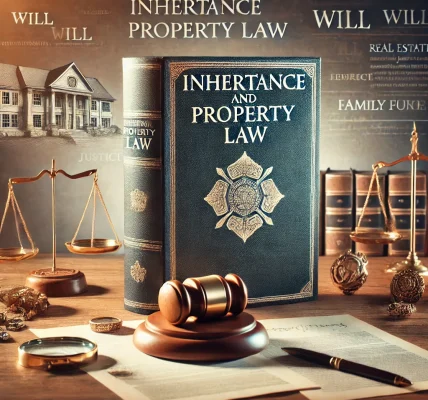1. What is Encroachment?
Encroachment occurs when an individual or entity unlawfully extends their property, construction, or any other structure onto someone else’s land. This can be intentional or unintentional, but in both cases, it can result in legal consequences.
Common Examples of Encroachment:
- Extending a fence, wall, or building beyond one’s property boundary.
- Constructing a shed, garage, or driveway that partially occupies a neighbor’s land.
- Overhanging tree branches or underground utilities extending onto another’s property.
2. Legal Consequences of Encroachment
A. Civil Liability & Lawsuits
If a property owner discovers encroachment, they have the right to take legal action against the encroacher. The affected owner can file a civil lawsuit demanding:
- Removal of the encroachment (via a court order).
- Compensation for damages caused due to the unauthorized use of the land.
- An injunction to prevent further encroachment.
B. Financial Penalties & Fines
Many jurisdictions impose financial penalties on individuals or businesses that encroach on others’ land. The encroacher may be required to:
- Pay a fine for unauthorized land use.
- Compensate the rightful owner for any loss of use or reduced property value.
C. Adverse Possession Claims
In some cases, if an encroacher occupies another’s land for an extended period (as defined by local property laws), they might claim adverse possession, gaining legal ownership of the land. However, this generally requires the encroachment to be:
- Open and notorious (visible to the true owner).
- Continuous (uninterrupted for a legally specified period).
- Hostile (without the true owner’s permission).
D. Demolition or Forced Removal
If the encroachment is significant and the court rules in favor of the rightful owner, authorities may order the removal or demolition of any structure extending onto the other’s land. This can be a costly consequence for the encroacher.
E. Criminal Charges in Severe Cases
Intentional encroachment, especially when done fraudulently, can sometimes lead to criminal charges like trespassing or illegal land grabbing, resulting in legal penalties or even imprisonment.
3. How to Prevent Encroachment Issues?
A. Conduct a Proper Land Survey
- Always verify property boundaries before constructing fences, buildings, or extending structures.
- Hire a licensed land surveyor to identify exact boundaries and prevent unintentional encroachment.
B. Obtain Written Agreements
- If you plan to use a portion of your neighbor’s land, always get written permission or enter into a formal land-use agreement.
- A legally binding easement agreement can help prevent disputes.
C. Check Land Records & Titles
- Before purchasing a property, ensure that the land titles and boundary records are properly documented.
- Conduct a title search to verify there are no prior disputes or encroachments.
D. Act Quickly if You Discover Encroachment
If you notice an encroachment:
- Communicate with your neighbor and try to resolve it amicably.
- Issue a legal notice demanding the removal of the encroachment.
- File a property dispute case if no resolution is reached.
4. Legal Remedies for Encroached Property Owners
If your property is encroached upon, you can take the following legal actions:
A. Negotiation & Mediation
- The first step is to talk to the encroacher and try to reach a peaceful resolution.
- Mediation through a neutral third party can help avoid court proceedings.
B. Filing an Injunction
- A property owner can file for an injunction to stop further encroachment.
- Courts can issue a restraining order preventing the encroacher from using the land.
C. Property Demarcation & Court Order for Removal
- The owner can request the court to appoint a government surveyor to mark legal boundaries.
- Based on the findings, the court may order the removal of encroaching structures.
D. Claiming Financial Compensation
- If encroachment leads to financial loss, the rightful owner can demand monetary compensation.
- Courts may order the encroacher to pay damages for illegal land use.
5. How to Legally Resolve Encroachment Without Going to Court?
To avoid lengthy legal battles, consider:
- Settlement Agreements: If both parties agree, a legal settlement can help avoid court cases.
- Easement Agreements: If the encroachment is minor, an agreement can allow shared land use.
- Land Exchange or Buyout: The encroacher may purchase the disputed land portion from the owner.
6. Conclusion
Encroachment on another’s property is a legal offense that can lead to financial penalties, lawsuits, or even criminal charges. To prevent legal troubles, always verify property boundaries, seek legal advice before making constructions, and resolve disputes amicably whenever possible. If you face encroachment issues, consult a property lawyer to take the right legal steps while avoiding unnecessary legal complications.



